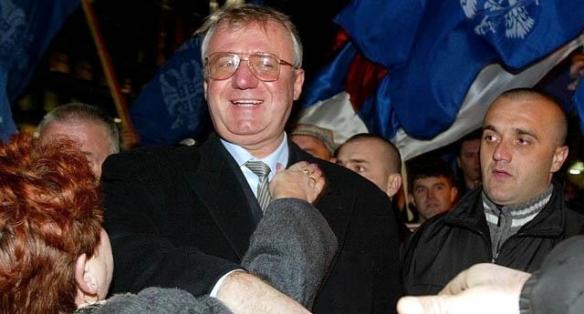by Alex Fielding, @alexpfielding on Twitter
I was interviewed last week by Daisy Sindelar of Radio Free Europe on the latest twist in the Vojislav Seselj saga (the article is available here). On November 6, a majority of the Seselj Trial Chamber (Judges Antonetti and Lattanzi, with Judge Niang dissenting) issued a provisional release decision on the grounds of Seselj’s ill health from liver cancer. The Chamber initiated the provisional release propio motu for the first time in ICTY history. The legal basis for this decision is problematic on a number of levels, but I couldn’t find much in the way of analysis beyond Luka Misetic’s post (in which he recommends that the Chamber issue an oral decision soon, with written reasons to follow, under rule 98 ter to try and avoid the Slobodan Milosevic scenario where a high-profile ICTY defendant dies in custody prior to judgment).
The Seselj saga has been a disaster for the ICTY, ever since he surrendered voluntarily in 2003 for war crimes and crimes against humanity charges for atrocities carried out in an effort to expel non-Serbs from parts of Croatia and Bosnia between August 1991 and September 1993.
In his eleven years of detention, he has been found in contempt of court three times for disclosing the identities of protected witnesses, refused court-appointed counsel by going on a hunger strike, and used his resulting right to self-representation to delay, obfuscate and insult those he faced during the drawn out proceedings. The Appeals Chamber’s decision to overturn the trial decision and allow Seselj to represent himself was particularly controversial as it appeared to be motivated at least in part by Seselj’s one month long hunger strike in protest of the trial decision.




